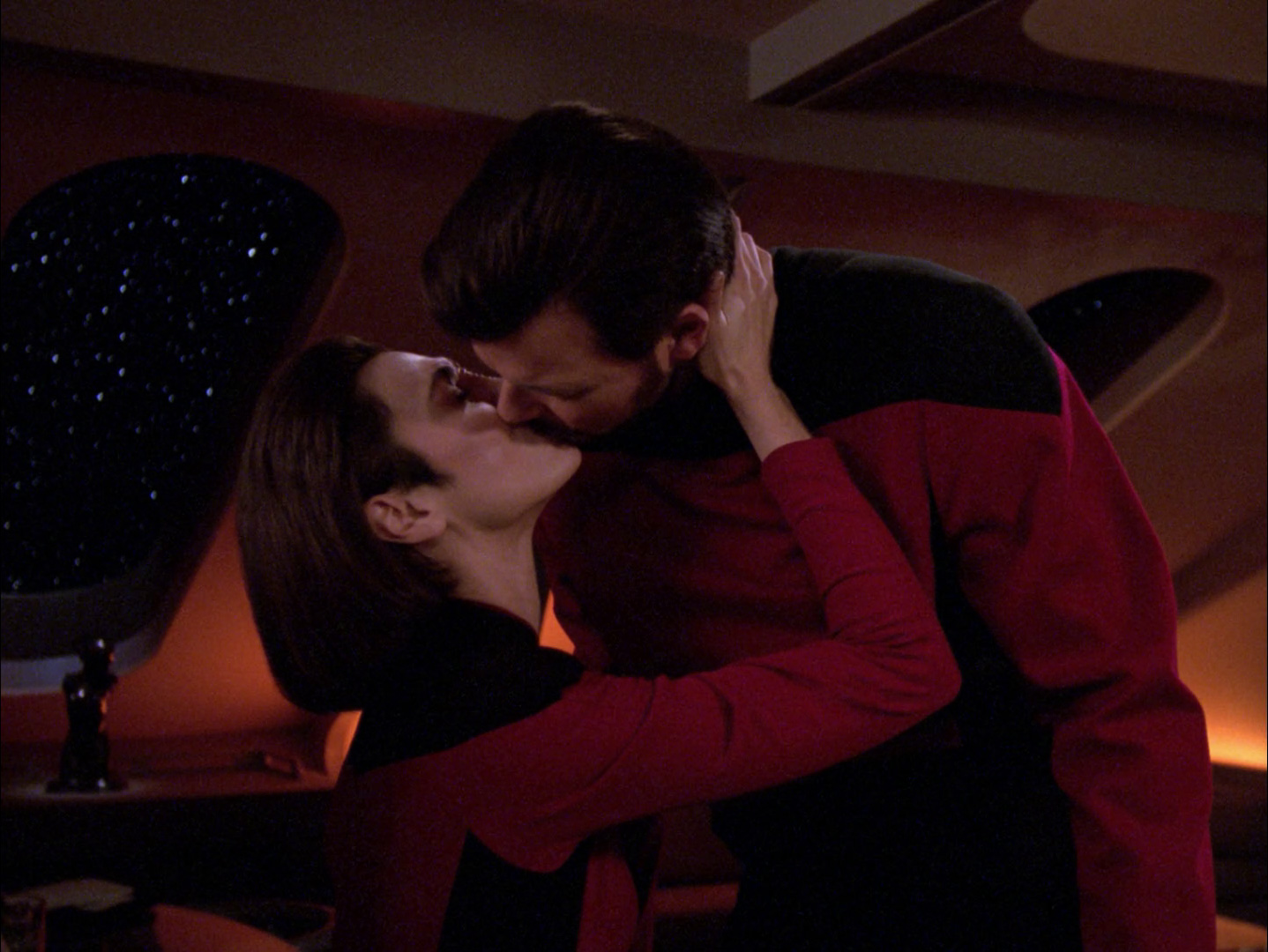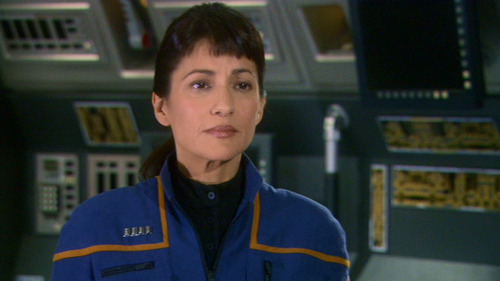I’ll give you a really quick summary in case you haven’t seen “Duet”, but you really should see it. I challenge all those Trekkers who never got into DS9 because they think you can’t tell exciting stories stuck on a space station to watch this episode and maintain that opinion.
So basically, a Cardassian comes to Deep Space Nine for treatment for a syndrome that Kira knows could only have been caused by exposure after a mining accident at the infamous Gallitep labor camp. Kira helped liberate the camp and gets justifiably emotional recalling the atrocities committed there. She wants the man, who says he is only a file clerk called Aamin Marritza, charged with war crimes.
Kira grapples with her desire for revenge as Bashir, Dax and Odo investigate Marritza’s identity. A key piece of evidence from the Bajoran Central Archives leads them to discover the man in the holding cell is, in fact, Gul Darhe’el, the “Butcher of Gallitep”.
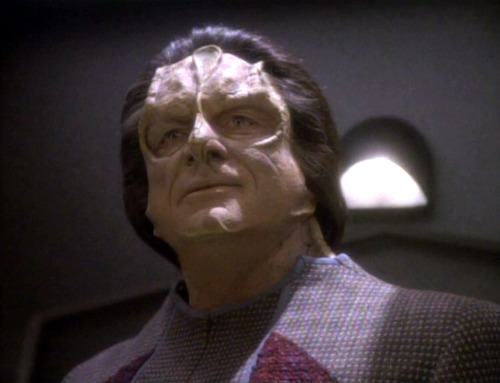
When Kira confronts him he admits it and practically taunts her about all the pain he caused the Bajorans (“What you call genocide I call a day’s work”). After the exchange, Kira is really shaken and she confides in Odo. But further investigation reveals once and for all that the Cardassian is who he said he first was: the file clerk Aamin Marritza.
He refuses to admit it at first, and amps up his Darhe’el rhetoric. But when Kira presses he finally breaks down:
“I covered my ears every night, but… I couldn’t bear to hear those horrible screams. You have no idea what it’s like to be a coward. To see these horrors, and do nothing.”
Kira goes to release him but he says he wanted to be executed to help Cardassia admit its guilt and take responsibility for their atrocities.
But Kira tells him she can’t help kill another innocent person. A while later Kira walks Marritza on the promenade to his ship home when a Bajoran runs up and fatally stabs him.
“Why?!” Kira says in anguish, “He wasn’t Darhe’el! Why?!”
“He’s a Cardassian; that’s reason enough,” replies the Bajoran man.
“No, it’s not.”

It was hard to figure out exactly what I wanted to say in this review, because the episode is so good and there’s so much I could talk about. I could talk about how it shows a bottle episode with good writing has just as much potential as a non-bottle episode. I could talk about how it’s a real turning point for Kira in coping post-occupation and maybe one of the first signs of Odo’s deep care for her. I could talk about the incredible acting and how it brings tears to my eyes. I could talk about the awesome scene where Kira confides to Dax about her desire for revenge, even if Marritza ends up being just a file clerk.
But instead I want to talk about maybe a less obvious and less discussed aspect: what this episode says about Sisko’s relationship with Kira and his command style.
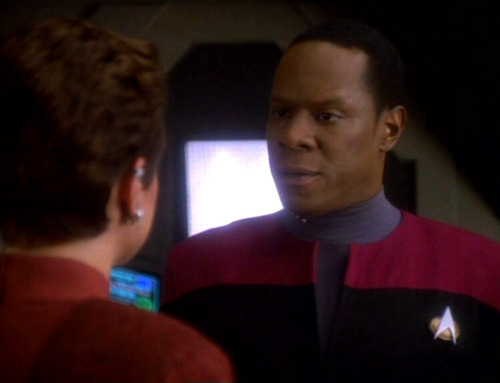
Sisko has tough decisions in this episode. He has to balance protecting due process for Marritza with supporting his first officer in her quest for truth and justice for her people. And having Gul Dukat breathing down his neck probably doesn’t help.
Initially he seems to be worried that Kira’s prejudices might lead to a rush to judgement, but when he recommends putting Odo in charge of the case instead, Kira argues passionately, and Sisko listens and respects her:
Kira: You think this is all some personal vendetta on my part, don’t you?
Sisko: I think you’re too close to be objective, yes.
Kira: You’re right, I’m not objective. But I’m your first officer, and I give you my word I will conduct myself accordingly. You once said we were friends. I’m asking you now as a friend, please, let me conduct this investigation. I owe it to them.
Sisko: You mean the victims.
Kira: That’s right. The ones who moved too slowly and never moved again. I’m asking for all the Bajorans who can’t ask. Let a Bajoran do this.
Sisko pauses and then hails Odo to tell him Kira will lead the investigation.
You could argue he should’ve said no, that Odo would’ve been as capable of discerning the truth, but this decision makes me respect Sisko massively.
It takes guts to acknowledge that you empathize with but can’t fully appreciate where someone more marginalized than you is coming from, to say they have a right to space and voice based on their unique perspective.
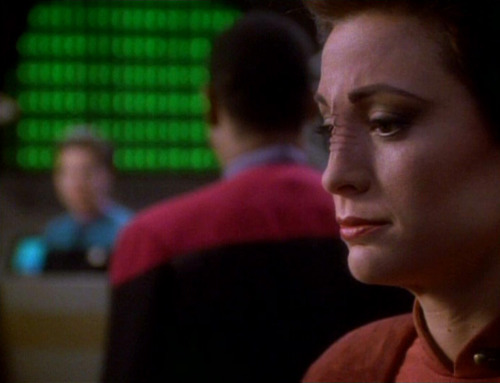
It’s hard for a Trek audience to appreciate and respect a character if they’re written as not being respected and appreciated by the captain (see Dr. Pulaski’s first episode or early Wesley Crusher). Kira and Sisko’s early relationship is so unique and powerful because it’s fraught with conflict, but Sisko never loses respect or empathy for her.
Instead of dismissing her emotions or berating her for them, Sisko steps back and gives Kira space to work through them. It’s recognized that her feelings are legitimate because of what she went through in the occupation. And they don’t make her any less capable of doing her job.
It’s a huge step forward for women in Star Trek and pop culture in general. Instead of having her emotions be a liability (a la Hoshi) or being asked to be emotionless, Kira (and later B’Elanna) are accepted, feelings and all.
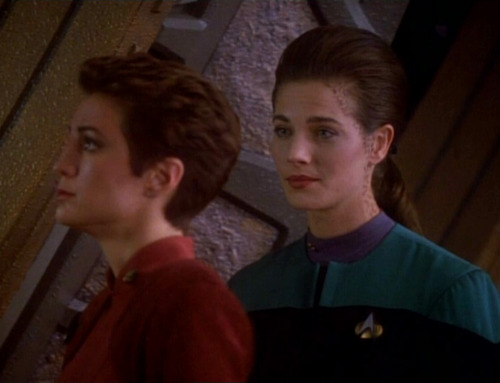
Bechdel-Wallace Test: Pass. In the first scene Dax tells Kira about when she misbehaved as a child. Later, Kira confides in Dax about her feelings about the case and Dax is there as an awesome voice of reason and insight.








